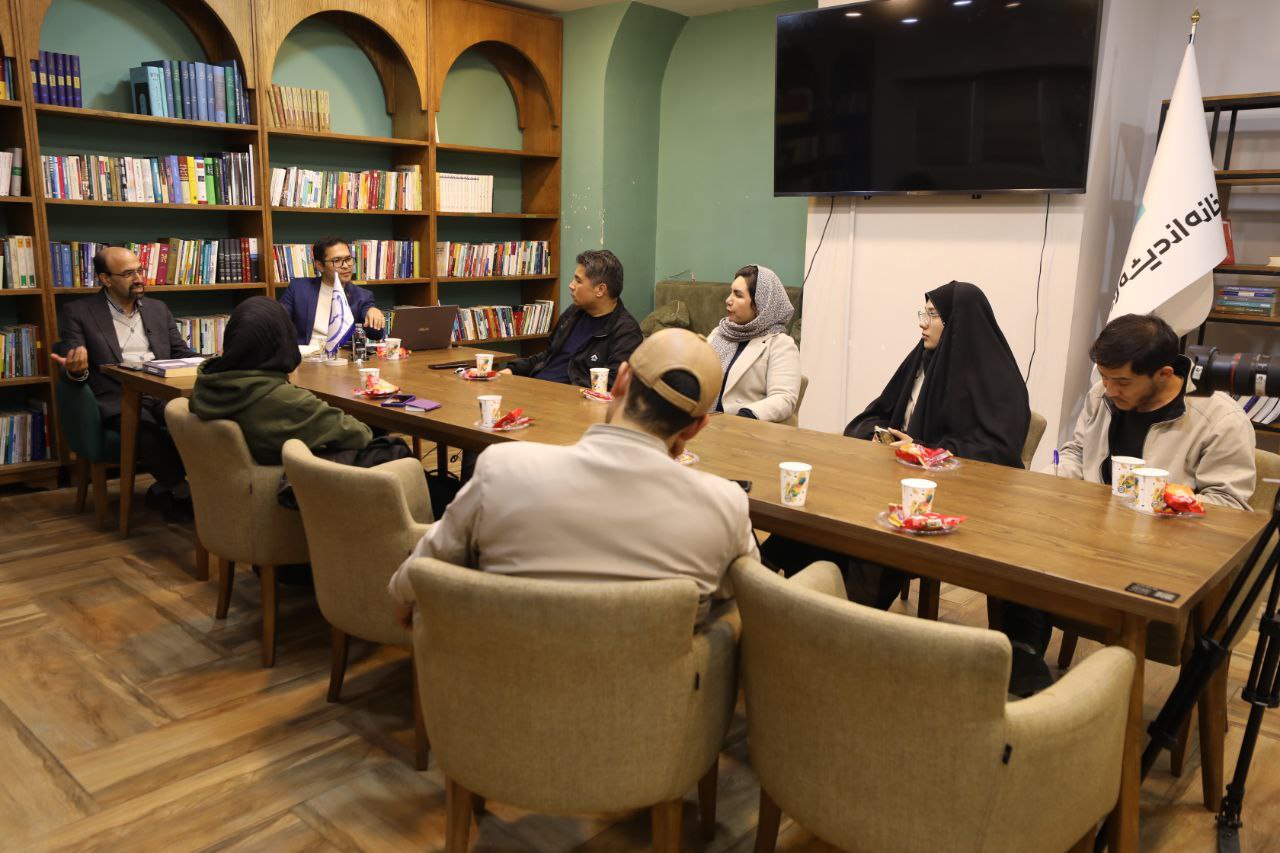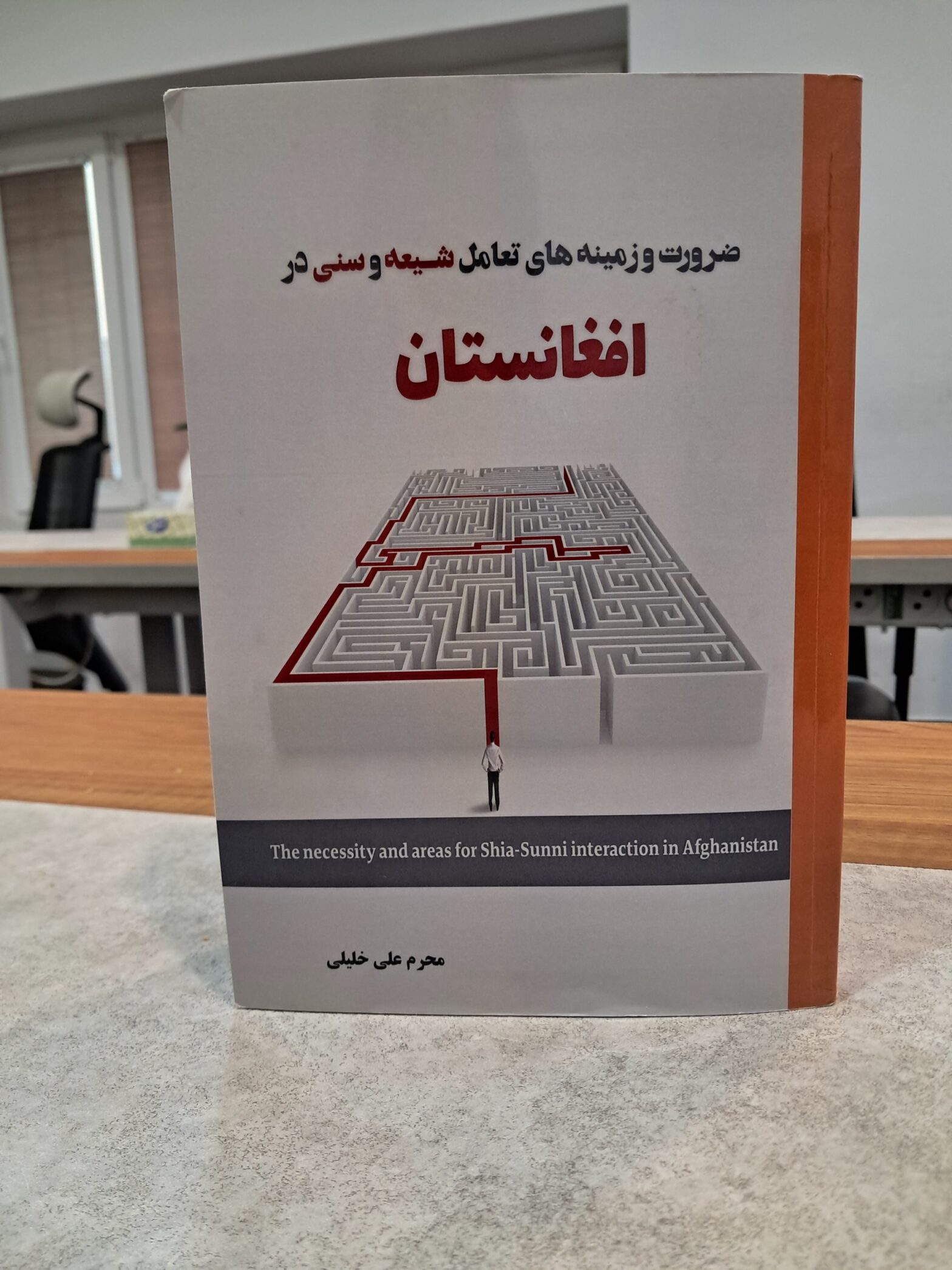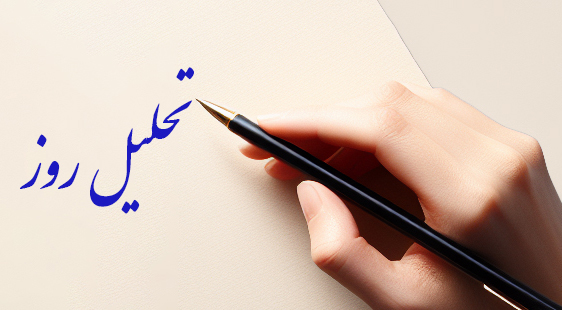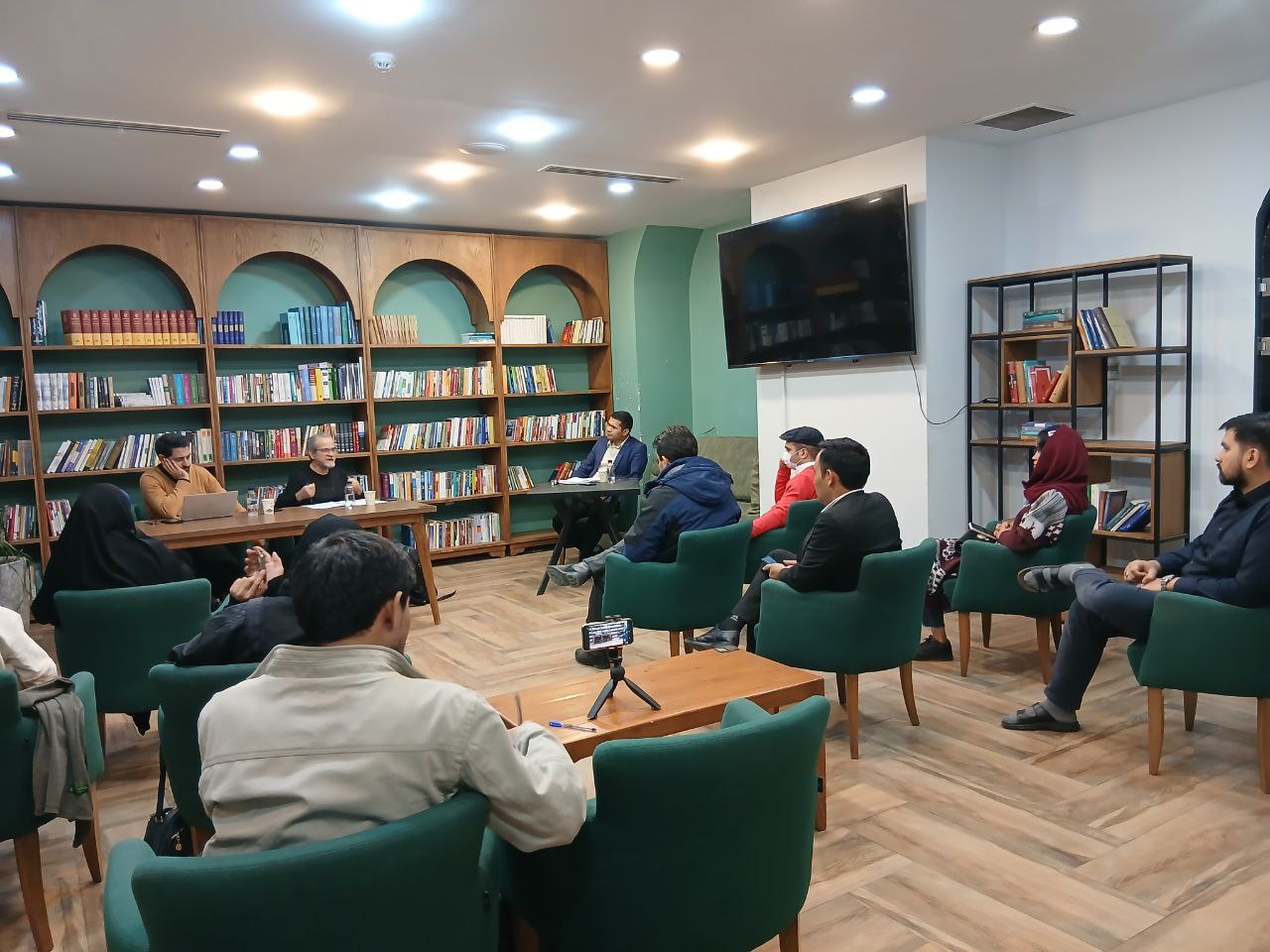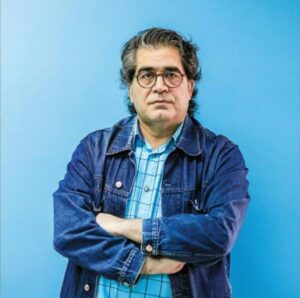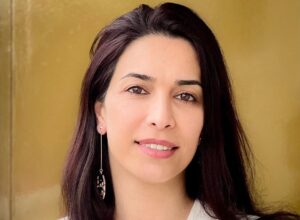گفتوگو با ویلمر ونتوری، فعال صلح و حقوق بشر
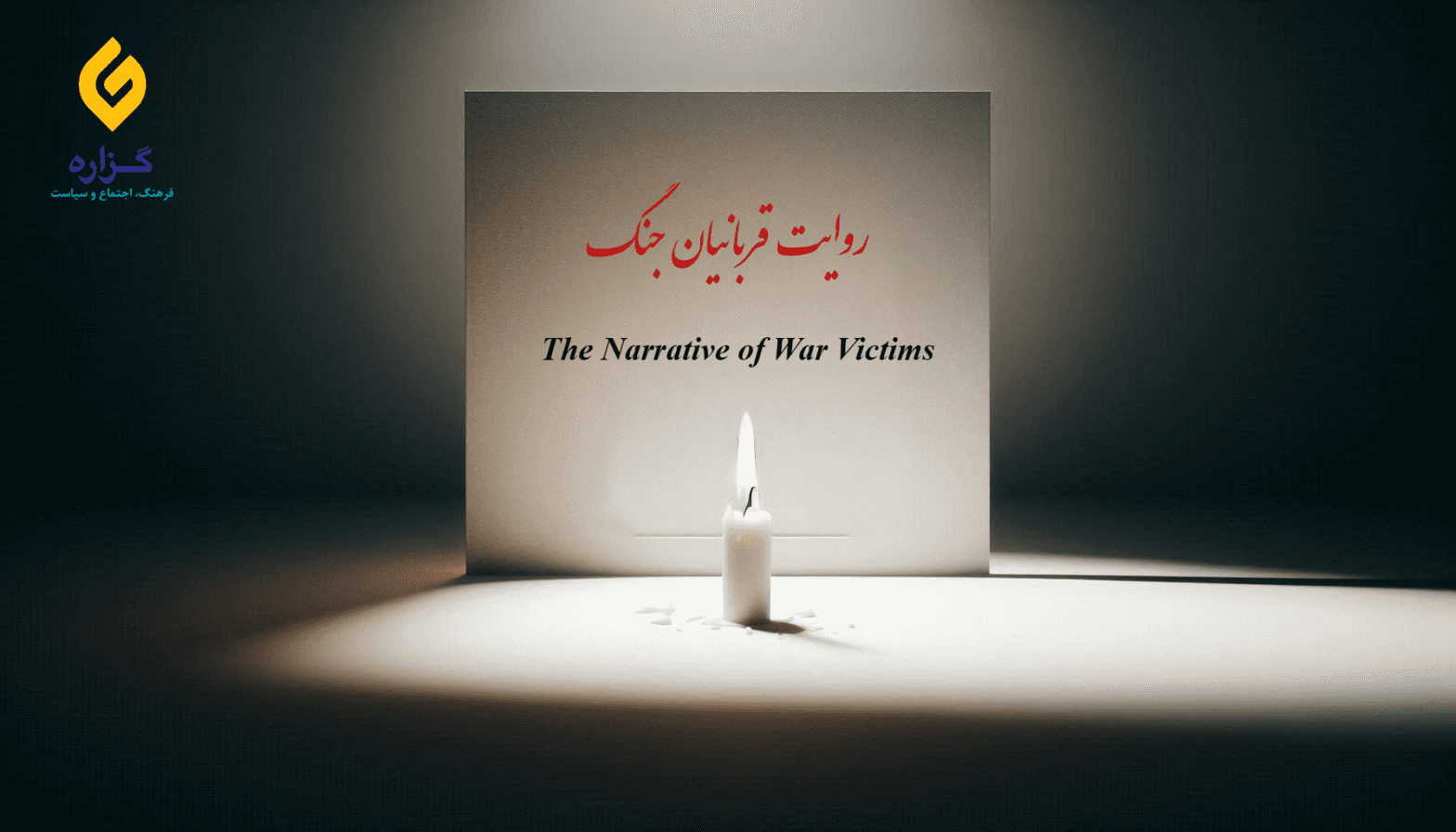
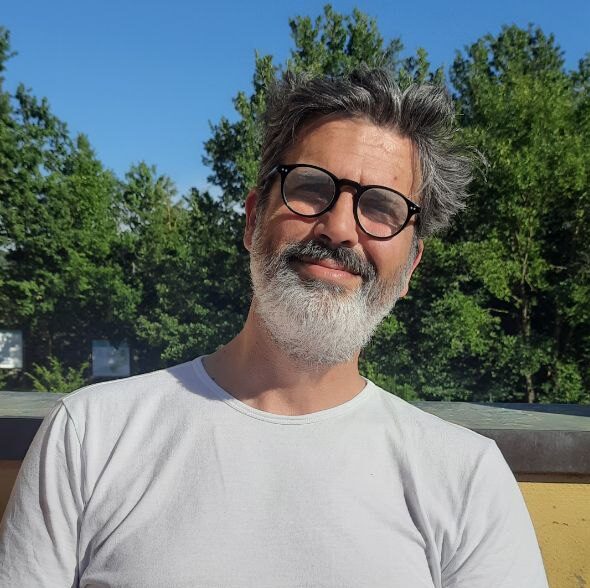
مصاحبه شونده: ویلمر ونتوری

گزاره: خیلی خوشحالم که این مصاحبه را با شما دارم. نخست لطفاً خودتان رو معرفی کنید و خلاصهی کوتاهی از رزومهتان بگویید.
ویلمر ونتوری: اسم من ویلمر ونتوری است. من اینجا در مدرسهی صلح در مونتهسوله کار میکنم. از سال ۲۰۰۱ اینجا کار میکنم. این بنیاد زمانی ایجاد شد که چندین سازمان، با همکاری شهرداری بولونیا و منطقهی امیلیا رومانیا، درخواست کردند مکانی داشته باشند که نهتنها برای صلح کار کنند، بلکه به آموزش و برنامهریزی برای نسلهای جوان هم بپردازند.
گزاره: یعنی مدرسه صلح مجموعهای از سازمانهاست؟
ویلمر ونتوری: در ابتدا، بله. این سازمانها به مونتهسوله آمدند، اما در پاجولو اقامت داشتند. آنها میتوانستند برای چند هفته بمانند، اما مکان مناسبی برای فعالیتهایشان نداشتند. این یک مکان عمومی بود، بنابراین در پایان این فرایند، در سال ۲۰۰۱، این بنیاد شکل گرفت.
گزاره: همانطور که میدانید، مونتهسوله از بولونیا فاصله زیادی دارد. چرا این مکان را برای تأسیس مدرسه صلح انتخاب کردید؟
ویلمر ونتوری: این مکان حداقل برای سازمانهایی که گفتم، مانند عفو بینالملل، و جنبشهای زیادی که به صلح و عدم خشونت مربوط بودند، شناخته شده بود. آنها این مکان را میشناختند، زیرا نزدیک به بولونیا است و فقط ۲۰ کیلومتر فاصله دارد. لازم نیست ساعتها سفر کنید. با این حال، رسیدن به اینجا آسان نیست، زیرا حدود ۱۰ دقیقه با ماشین از نزدیکترین شهر، مانند مارزابوتو فاصله دارد.
گزاره: اما آقای ویلمر، منظورم این است که شما بهخاطر پیشینهی تاریخی اینجا را برای مدرسهی صلح انتخاب کردید، درست است؟ میتوانید توضیحی مختصر از پیشینهی مونتهسوله برای مخاطبان ما بدهید؟
ویلمر ونتوری: بله، این مکان درون یک پارک منطقهای طبیعی و تاریخی قرار دارد. این پارک در دهه ۱۹۸۰، وقتی که این منطقه بعد از جنگ جهانی دوم کاملاً متروک شده بود، ایجاد شد. در این منطقه، بین ۲۹ سپتامبر تا ۵ اکتبر ۱۹۴۴، یک قتلعام توسط نازیها انجام شد که در آن غیرنظامیان کشته شدند. این منطقه تا سال ۱۹۸۴ متروک بود، تا زمانی که گروهی از راهبان شروع به زندگی در اینجا کردند.
گزاره: چرا به مدرسه صلح پیوستید؟ آیا دلیل شخصی داشت؟
ویلمر ونتوری: بله، من قبل از تأسیس بنیاد مدرسه صلح اینجا در مونتهسوله کار میکردم. با عفو بینالملل همکاری داشتم و در سال ۱۹۹۸ به اینجا آمدم، بنابراین این مکان را میشناختم و با همسرم اینجا کار کردیم.
گزاره: همسرتان اینجا با شما کار میکرد؟
ویلمر ونتوری: بله، ما بهعنوان یک زوج خیلی سخت کار میکردیم. ما اولین افرادی که میخواستند به ما بپیوندند را ملاقات کردیم و شروع به همکاری کردیم. از همان ابتدا ما به همکاری ادامه دادیم.
گزاره: آیا خارج از ایتالیا هم کار کردهاید؟
ویلمر ونتوری: نه، نه. فقط در ایتالیا کار کردهام.
گزاره: میتوانید توضیح بدهید که برای مردم در سازمانتان چه کارهایی انجام میدهید؟ مخاطبان ما میخواهند بدانند که مدرسهی صلح در جامعه ایتالیا و یک کشور غربی چه نقشی دارد و شخصی مثل شما برای صلح چه کاری میتواند انجام بدهد؟
ویلمر ونتوری: خوب، من اینجا کار میکنم، چون این راهی که من برای مشارکت در این فرایند انتخاب کردم. من از درون یک صلحطلب هستم. همیشه از خشونت متنفر بودهام. به جای خدمت سربازی، خدمت غیرنظامی انجام دادم و اینطوری باورهای من قویتر شد. وقتی همسرم پیشنهاد کرد که با کودکان و جوانان کار کنیم، همانطور که من در دوران خدمت غیرنظامی تجربه داشتم، فکر کردم که این کار جالب و معناداری است. من باور دارم که جوانان کلید آینده هستند و مهم است که با آینده در ارتباط بمانیم. ما اینجا با گذشته در ارتباط هستیم، چون کار من شامل بازآفرینی و تکرار تاریخ میشود. هر روز، وقتی گروههایی از جوانان یا افراد مسنتر به اینجا میآیند، من باید دوباره گذشته را بازگو کنم و به نوعی زندگی کنم.
گزاره: چه احساسی دارید وقتی با کودکان، نوجوانان، یا افرادی که میخواهند دربارهی گذشتهی مونتهسوله، حقوق بشر یا صلح بدانند، کار میکنید؟
ویلمر ونتوری: جوانانی که اینجا میآیند معمولاً از طرف مدرسه میآیند. در این گروهها، علاقههای مختلفی وجود دارد. برخی به تاریخ خیلی علاقهمندند، برخی کاملاً بیتفاوتند. کار من این است که با آنها تعامل داشته باشم، بگذارم نظراتشان را بیان کنند و دیدگاهشان دربارهی گذشته و آینده خودشان رو به اشتراک بگذارند.
گزاره: آیا تا حالا دربارهی وضعیت افغانستان شنیدهاید؟
ویلمر ونتوری: بله، قطعاً.
گزاره: دربارهی وضعیت افغانستان چه فکری دارید؟
ویلمر ونتوری: میتوانم تصور کنم که وضعیت چقدر وحشتناک است. زندگی بدون هر گونه حمایت رفاهی و امنیتی میتواند تمام امیدها را از بین ببرد و فکر میکنم وقتی همه چیز را از دست بدهید، فقط افکار منفی به ذهن میرسد.
گزاره: آیا تا حالا با مردم افغانستان کار کردهاید؟
ویلمر ونتوری: نه. این اولین بار است.
گزاره: چطور افغانستانیها را در این کارگاه آموزشی هستند، توصیف میکنید؟ شاید افغانستان برای شما کشور ناشناختهای باشد. مردم ما را چطور تعریف میکنید؟
ویلمر ونتوری: به نظر من، با توجه به آنچه که در این روزها با هم به اشتراک گذاشتیم، میتوانم بگویم، شما مثل برادر من هستید. ما خیلی به هم وابسته هستیم.
گزاره: وقتی مردم افغانستان از شما میپرسند، “ویلمر، شما به عنوان یک فعال حقوق بشر و صلح، میتوانید به من کمک کنید؟ آیا واقعاً میتوانید به مردم افغانستان کمک کنید؟”
ویلمر ونتوری: اگر از من بپرسید، هر کاری که از دستم بربیاید انجام میدهم.
گزاره: برای مثال، اگر مردم افغانستان به شما بگویند “ویلمر، ما نیاز داریم که به ما کمک کنید تا حقوق بشر و صلح را در افغانستان ترویج بدهیم”، شما چه کاری میتوانید انجام بدهید؟
ویلمر ونتوری: نمیدانم. بستگی دارد به درخواست شما، دانش من و تجربیاتم.
گزاره: درسته. برای مثال، به مخاطبانم بگویید مردم افغانستان چطور میاتونند به صلح دست پیدا کنند؟
ویلمر ونتوری: به جوانان اعتماد کنید. باید به نسل جوان اعتماد کنید. دیدگاه آنها به شما کمک میکند، شاید نوری و امیدی به شما بدهد. اگر فقط به گذشته نگاه کنیم، حرکت نمیکنیم.
گزاره: اگر بخواهید یک پیام برای نسل جدید افغانستان بر اساس تجربیاتتان از جنگ جهانی دوم و مونتهسوله بفرستید، چی میگویید؟
ویلمر ونتوری: تجربه من این را به من نشان داده که جوانها به شکلی با هم در ارتباط هستند که میتوانند بیش از هر کسی به هم کمک کنند. بنابراین به هم کمک کنید و به یاد داشته باشید که دیگران هم مثل شما هستند.
گزاره: از وقتی که گذاشتید، ممنونم.
ویلمر ونتوری: منم از شما متشکرم.
English
Interview with Wilmer Venturi, Peace and Human Rights Actvist
Gozaare: It is my pleasure to have an interview with you. First, please introduce yourself and give a brief summary of your resume.
Wilmer Venturi: My name is Wilmer Venturi. I work here in Monte Sole, in the School of Peace foundation. i have been working here since 2001, when, how can I say this, new ideas emerged here in Monte Sole, Italy. This foundation was born because several organizations came together, through the municipality of Bologna and the region of Emilia Romagna, asking for a place where they could not only work for peace but also educate and organize programs for younger generations.
Gozaare: You mean the Peace School is a combination of organizations?
Wilmer Venturi: At first, yes. These organizations came to Monte Sole, but they stayed at Pajolo. They could stay for weeks, but there wasn’t a proper place for their activities. It’s a public place, so by the end of this process, in 2001, this foundation was born.
Gozaare: As you know, Monte Sole is far from Bologna. What was the reason for choosing this location to establish the Peace School?
Wilmer Venturi: This place was known, at least, as I told you, by organizations like Amnesty International. There were many movements related to peace and nonWilmer Venturiviolence. They knew about this place because it’s near Bologna, just 20 kilometers away. You don’t have to travel for hours. However, it’s not easy to reach because it’s about 10 minutes by car from the nearest city, like Marzabotto.
Gozaare: But Mr. Wilmer, I mean, you selected this place for the Peace School because of its historical background, right? Could you briefly explain the background of Monte Sole to our audience?
Wilmer Venturi: Yes, this place is inside a regional park—a natural and historical park. It was established in the midWilmer Venturi1980s when this area was completely abandoned after World War II. From September 29 to October 5, 1944, there was a massacre here, where civilians were killed by Nazi fascists. The area remained abandoned until 1984 when a group of monks started living here.
Gozaare: Why did you join the Peace School? Was there a personal reason behind it?
Wilmer Venturi: Yes, I worked here in Monte Sole before the Peace School foundation was born. I worked with Amnesty International and came here in 1998. So I knew this place, and my wife and I worked together.
Gozaare: Your wife?
Wilmer Venturi: Yes, Elena.
Gozaare: Is Elena your wife?
Wilmer Venturi: Oh, not this Elena.
Gozaare: She was working here?
Wilmer Venturi: Yes, we worked as a couple, very hard. But no, we met the first people who wanted to join, and we started collaborating. From the very beginning, we continued working together.
Gozaare: Have you worked outside of Italy?
Wilmer Venturi: No, no. I’ve only worked in Italy.
Gozaare: Can you explain what you do for people in your organization? My audience wants to know what the Peace School does for peace in Italian society, in a Western country, and what someone like you can do for peace?
Wilmer Venturi: Well, I work here because it’s my way of being involved in the process. I’m a pacifist at heart. I always regretted violence. I did civil service instead of military service, and that’s when my beliefs became stronger. When my wife suggested working with children and youth, just as I did during my civil service, I thought it was interesting and meaningful. I believe the youth are the key to the future, and it’s important to stay connected with the future. While we work here, we are constantly in contact with the past, because my work involves reliving and repeating history. Every day, when groups of young or older people come here, I repeat and relive what happened in the past.
Gozaare: How do you feel when you work with children or teenagers, or with people who want to learn about the past of Monte Sole, human rights, or peace?
Wilmer Venturi: The young people who come here usually come with schools. In these groups, there’s a variety of interests. Some are very interested in history, while others are completely indifferent. My job is to engage them, let them express their opinions, and share their views on what happened and what their future might hold.
Gozaare: Does this interest you?
Wilmer Venturi: Yes, I’m very happy and truly interested in hearing their opinions and perspectives.
Gozaare: Have you heard about the situation in Afghanistan?
Wilmer Venturi: For sure.
Gozaare: What do you think about the situation in Afghanistan?
Wilmer Venturi: I can imagine how terrible it is. Living without any kind of welfare or security can crush all hope, and I think that when people lose everything, only negative thoughts arise.
Gozaare: Have you worked with Afghan people before?
Wilmer Venturi: No.
Gozaare: Is this the first time?
Wilmer Venturi: Yes.
Gozaare: How would you describe Afghans in the workshops where you meet some of them? Afghanistan may be an unfamiliar country to you. How would you define our people?
Wilmer Venturi: In my opinion, based on what we’ve shared during these days, I would say you’re like my brothers. We’re very connected.
Gozaare: When people from Afghanistan ask you, Wilmer, as a human rights and peace activist, can you help me? Can you help Afghan people?
Wilmer Venturi: If you ask, I will do what I can.
Gozaare: For example, if Afghan people say to you, “Wilmer, we need your help to promote human rights and peace in Afghanistan,” what could you do?
Wilmer Venturi: I don’t know. It depends on your request, on my knowledge, and on my experience.
Gozaare: You’re right. For example, what would you say to our audience about what Afghan people can do to achieve peace?
Wilmer Venturi: Trust in the youth. You must trust in the younger generation. Their perspective will help you, maybe give you light and hope. If you keep looking at the past, we won’t move forward.
Gozaare: If you want to send a message to the new generation in Afghanistan, based on your experiences from the Second World War and Monte Sole, what would you say?
Wilmer Venturi: My experience tells me that young people are connected in ways that allow them to help each other more than anyone else can. So help each other, and remember that others are just like you.
Gozaare: Thank you for your time.
Wilmer Venturi: Thank you.

